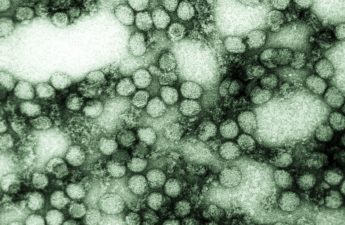
Ken Anderson
Public Health — Seattle & King County
Breathing wildfire smoke can harm everyone’s lungs, heart, and overall health. And this year we’re expecting hotter weather and less rain—meaning more smoky days.
Four steps can help you and your loved ones stay safe when wildfire smoke is in the air.
1. Check the Air Quality Index, or AQI, to see how smoky it is outside. Check current conditions and forecasts at AirNow.gov, or scroll down on your weather app.
2. Avoid outdoor exercise and move indoors when it’s smoky out. If you’re at higher risk from smoke, move indoors if the AQI is 100 or higher. This includes people who are age 18 and under, over age 65, have heart or lung conditions like asthma, and who are pregnant. When the AQI is 150 or higher, everyone should move indoors. If you need to be outside, an N95 mask can help to protect most people from smoke.
3. Watch for symptoms of smoke exposure. Move someone inside if they have a headache, sore throat or nose, cough, burning eyes, dizziness, or wheezing. Keep inhalers and medications ready. Call or text 911 if someone has serious symptoms from breathing smoke, like trouble breathing or chest pain.
4. Make a clean room in your house with a HEPA filter. Close windows, curtains, and blinds and run AC or a fan to stay cool. If it gets too hot, move to a cooler place outside in the shade or a public place with air conditioning.
Please share these tips with friends, family, and neighbors to help stay safe when it’s smoky out.
What is the health risk from wildfire smoke?
Wildfire smoke is unhealthy for everyone, especially after heavy exercise or spending long periods of time outside. In Washington State, researchers have found that more people need to visit an Emergency Department for heart and lung issues after smoky days.
Asthma and other respiratory visits go up immediately after wildfire smoke exposure, and cardiovascular visits rise a day or more after someone was exposed. Children and young to middle-aged adults (ages 19-64) who exercise outdoors are at high risk of these emergency visits—a reminder that exercising outdoors on a smoky day can be dangerous for everyone.
Smoke from forest fires contains tiny particles and other chemicals that can irritate your eyes, nose, throat and lungs and cause widespread inflammation. It can also trigger asthma attacks and worsen existing lung, heart, or circulatory conditions.
Communities of color, people with underlying illness or disability, and low-income communities in King County are at higher risk from health problems caused by wildfire smoke and climate change, because of historical and ongoing health inequity and a lack of access to care.
How to prepare for wildfire smoke this year
The most important way to stay safe is to spend time indoors when it is smoky outside. Close windows and doors, set up a clean air room using a HEPA filter, and run air conditioning if possible. If you have an HVAC system, use filters with a high rating (MERV 13 or higher) and set the system to recirculate. If it gets too hot indoors, move to a mall, library, or other air-conditioned building.
Portable HEPA air cleaners designed for one room are available online starting around $50. Replace filters when they become noticeably darker, which will happen more quickly on smoky days.
To help keep indoor air clean, avoid burning candles or incense, frying or broiling food, using gas stoves, vacuuming, or spraying aerosol products.
Do masks protect from wildfire smoke?
If you can’t avoid spending time outside when it is smoky, well-fitting N95 masks offer good protection from wildfire smoke for most people—see this PDF for more information. Because wood smoke particles are so tiny, KN95 masks may not offer the same level of protection as an N95, while cloth masks don’t provide much protection from wildfire smoke.
Because N95 masks can block air flow and make it harder to breathe, they can worsen some pre-existing health conditions if worn for too long. Talk to your healthcare provider and remember that moving indoors is the safest option.
Help our community stay safe
Help family, friends, and neighbors who may be at risk plan for wildfire smoke this season, and check in on them on smoky days.
Check kcrha.org/news/ for a list of cooling shelters on extremely hot and smoky days that are open to everyone.
Receive alerts about hazards in King County by signing up for Alert King County and Alert Seattle. Both services are free, available in several languages, and you can choose to get notifications by text, email, or phone.
For more information
- Visit our Wildfire Smoke Preparedness page for print resources (including a one-page flyer in English, Spanish, and additional languages), information, and tips in multiple languages.
- The EPA has detailed instructions about making a clean air room.
- Check AirNow.gov daily for the latest air quality reports and forecasts.
- Find guidance for school and child care activities and other resources from the Washington State Department of Health.
- Visit our Hot Weather Preparedness page for information about staying safe in the heat.
Published June 12, 2024


